The causes of female infertility can be listed according to their frequency rates as follows,:
- Problems in the fallopian tubes
- Ovulation problems
- Age factor
- Problems of the uterus
- Endometriosis
- Genetic causes
Problems of the Fallopian Tubes
The fallopian tubes are canal structures that originate from the right and left sides of the uterus and extend to the ovaries with finger-like projections. The tubes are the site of fertilisation of the male sperm and the female egg cell. In addition, the fertilised egg (embryo) reaches and is implanted in the uterus through the tubes. Therefore, it is important that the tubes are both open and function normally for pregnancy to occur.
What are the causes and symptoms of blocked tubes?
Tubal obstruction may develop due to previous pelvic infections, intra-abdominal surgeries or endometriosis. The majority of women do not realise that their tubes are blocked until they are investigated for infertility.
How are blocked tubes diagnosed?
The most commonly used method to determine whether the tubes are open is a uterine film, i.e. hysterosalpingography (HSG). A uterine film is a method of examination that monitors the distribution of an opaque substance in the uterus and its passage through the tubes 3-4 days after the end of menstruation with a special cannula. With this method, both congenital or acquired problems that may prevent pregnancy in the uterine cavity can be detected and information about the structure and patency of the tubes can be obtained. The patency of the tubes can also be checked by laparoscopy.
Can a woman with obstructed tubes become pregnant?
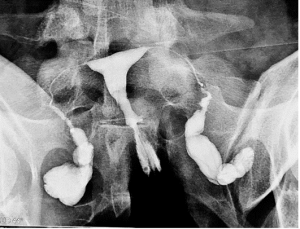 The ‘tubal microsurgery’ method used for the treatment of infertility due to obstruction in the tubes has been replaced by IVF today. If a hydrosalpenx is detected in the uterine film, in which the tube is filled with fluid and swollen, we recommend laparoscopic removal of this damaged tube before IVF treatment.
The ‘tubal microsurgery’ method used for the treatment of infertility due to obstruction in the tubes has been replaced by IVF today. If a hydrosalpenx is detected in the uterine film, in which the tube is filled with fluid and swollen, we recommend laparoscopic removal of this damaged tube before IVF treatment.
Ovulation Problems
Normal menstrual frequency in women of reproductive age is between 21-35 days. If there are menstrual cycles other than this, it is generally considered that there is an ovulation problem. Polycystic ovary syndrome (PCOS) and some hormonal disorders (thyroid diseases, high prolactin levels, early menopause, etc.) are the most common causes of ovulation disorders.
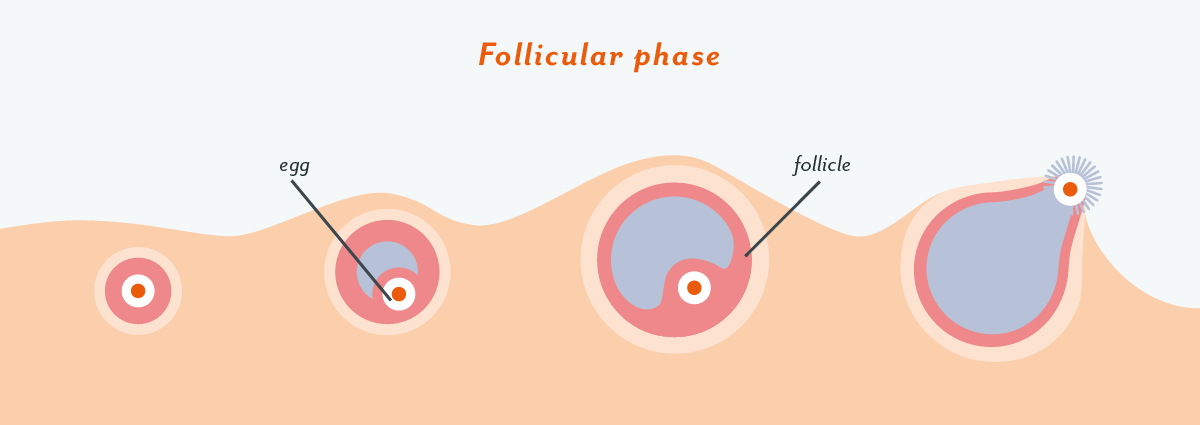
Age Factor
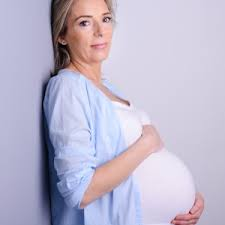 Female age is one of the most important factors in fertility.
Female age is one of the most important factors in fertility.
After 35 years of age, fertility starts to decrease and continues to decrease rapidly after 40 years of age in women. The ovarian reserve decreases with advancing age. In addition, the quality and genetic health of the egg cell deteriorates.
If pregnancy is not achieved despite unprotected and regular sexual intercourse for a year in women under 35 years of age, for 6 months in women over the age of 35 and for 3 months in women aged 40 and over, further evaluation is started for infertility research.
Causes related to the uterus
Problems originating from the uterus can be categorised under two headings.
Congenital anomalies
Congenital anomalies such as partial or complete underdevelopment of the uterus, septum (curtain) narrowing the uterine cavity, double uterus, unicorn uterus can both prevent pregnancy and cause recurrent miscarriages. Some of the congenital anomalies can be corrected with surgery.
Problems that develop later
Fibroids, polyps, adhesions caused by abortion or infections may be the cause of infertility. These problems that develop later can also be treated with surgery.
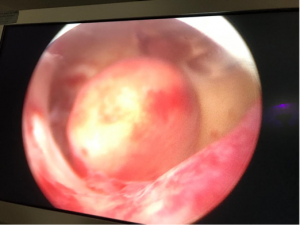 |
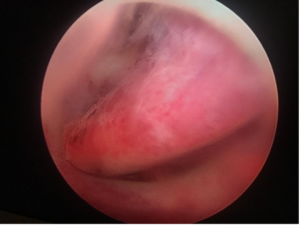 |
| Fibroid | Polyp |
Endometriosis
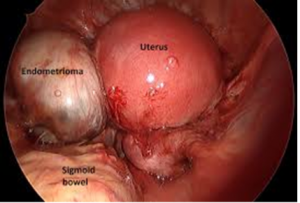 The presence of inner lining of the uterus (endometrium) in any organ or tissue outside the uterus is called ‘Endometriosis’. Endometriosis often affects the membranes surrounding the ovaries and abdominal organs. It can also cause cysts called ‘Endometrioma’ (chocolate cyst) in the ovary. Therefore, endometriosis can prevent pregnancy by causing both ovulation disorder and obstruction in the tubes.
The presence of inner lining of the uterus (endometrium) in any organ or tissue outside the uterus is called ‘Endometriosis’. Endometriosis often affects the membranes surrounding the ovaries and abdominal organs. It can also cause cysts called ‘Endometrioma’ (chocolate cyst) in the ovary. Therefore, endometriosis can prevent pregnancy by causing both ovulation disorder and obstruction in the tubes.
Genetic Causes
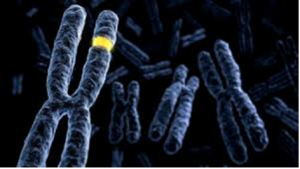 Numerical or structural abnormalities of the chromosomes and inherited gene disorders in both men and women may cause infertility or recurrent miscarriage.
Numerical or structural abnormalities of the chromosomes and inherited gene disorders in both men and women may cause infertility or recurrent miscarriage.

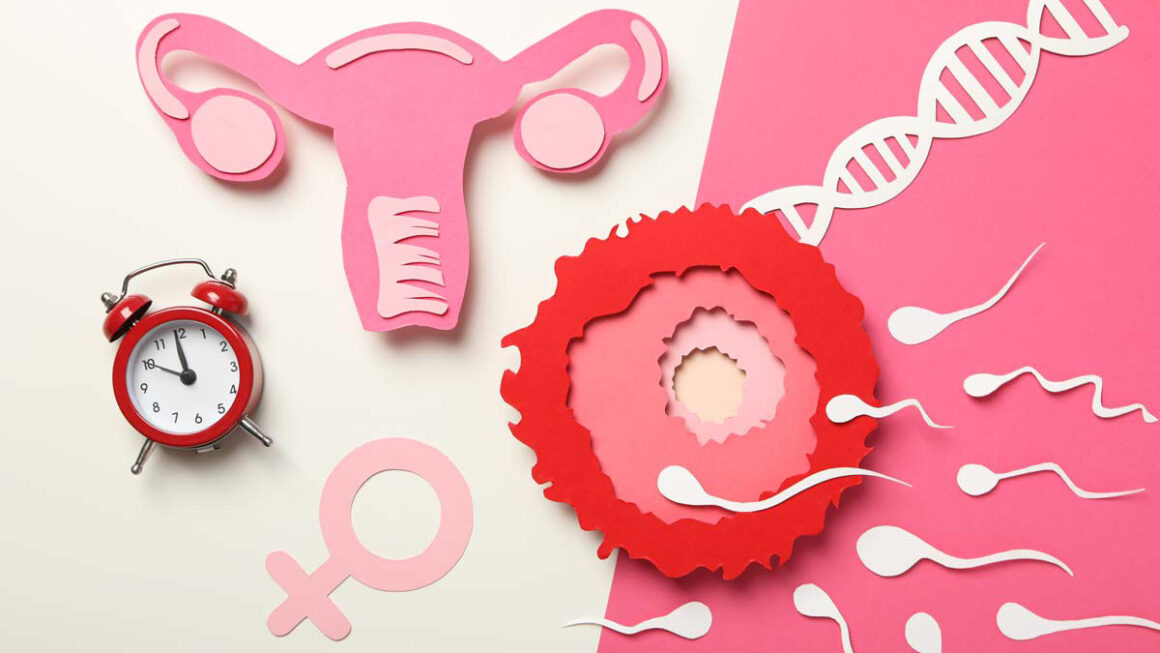
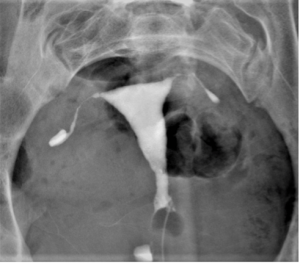
Leave a Reply
You must be logged in to post a comment.